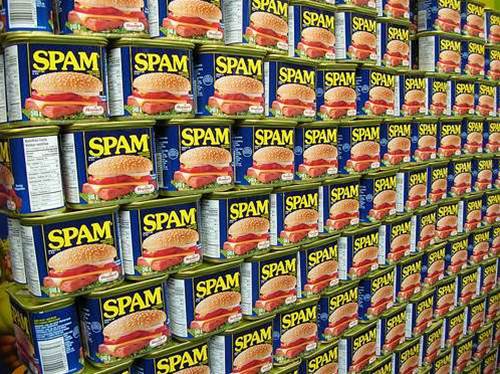The downturn in spam has led to a rise in "rogue direct marketing" on social networks.

A combination of destoryed botnets, arrests and spam traps had led to a decline in traditional spam, Barracuda Networks EMEA general manager Wieland Alge said.
However, he said this has led to a rise by three times in spam on social networks.
"We monitor mass attacks on social networks closely on Twitter and Facebook and both are in a critical state," Alge said.
"Only one per cent of Twitter messages and 1.6 per cent on Facebook are bad, but the sheer amount of messages makes it [worrying].
“On Facebook, if one in 200 messages is spam, you will read it and click on the links. The rogue direct marketers are terrible spellers, but the click rate is massive due to the small amount of text. They use automated clients and the success rate is massive.”
Barracuda Networks' chief research officer, Dr Paul Judge, said attacks have gone up significantly over the past two years and attackers are now using Facebook's new implementations and APIs and creating fake pages to attract 'likes'.
“If one person likes a page, they can be tagged in a photo with 50 other people. They have 5000 friends so 250,000 people can be reached from one photo; that is why it is so efficient,” he said.
He said fake accounts account for 1 per cent of Facebook profiles, and between 10 to 30 per cent were not operated by real people.
Judge also said that Twitter continued to have fake accounts with huge amounts of malicious tweets sent, while new social networks such as Pinterest and Foursquare have not had such a level of spam interest as yet.

_(33).jpg&h=140&w=231&c=1&s=0)
_(23).jpg&h=140&w=231&c=1&s=0)
_(20).jpg&h=140&w=231&c=1&s=0)






 iTnews Executive Retreat - Security Leaders Edition
iTnews Executive Retreat - Security Leaders Edition
 iTnews Benchmark Awards 2026
iTnews Benchmark Awards 2026
 iTnews Cloud Covered Breakfast Summit
iTnews Cloud Covered Breakfast Summit
 The 2026 iAwards
The 2026 iAwards












_(1).jpg&h=140&w=231&c=1&s=0)



